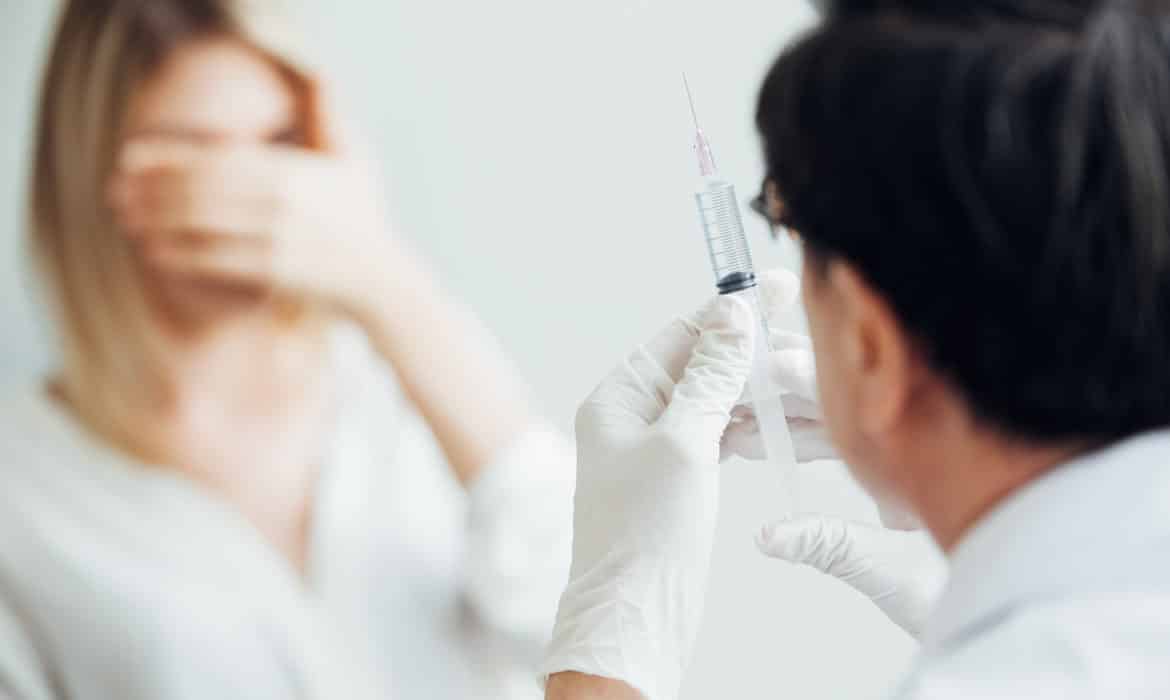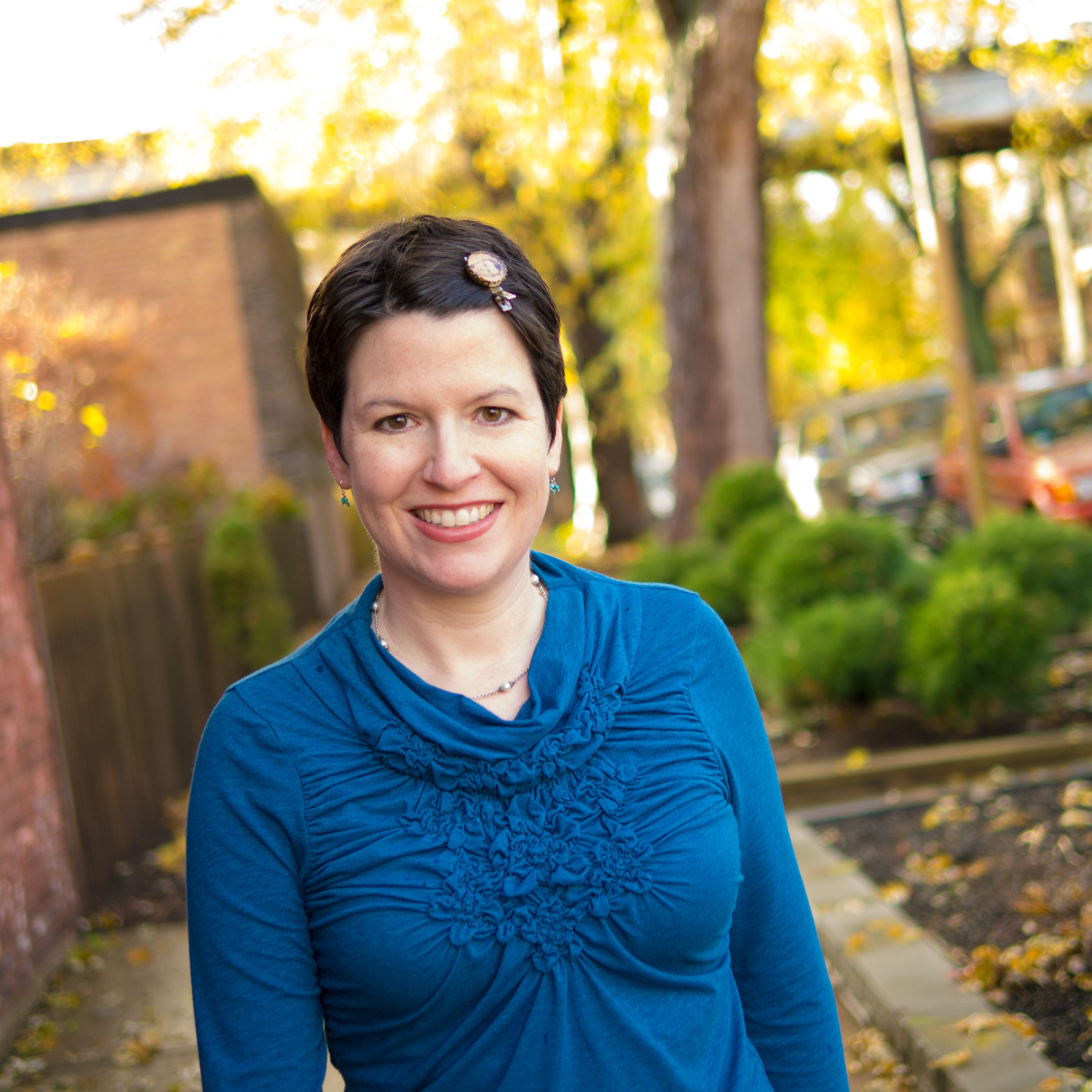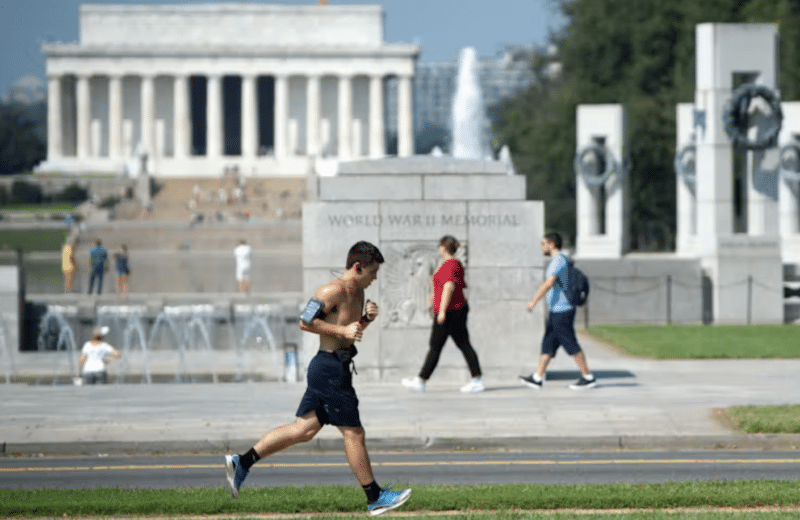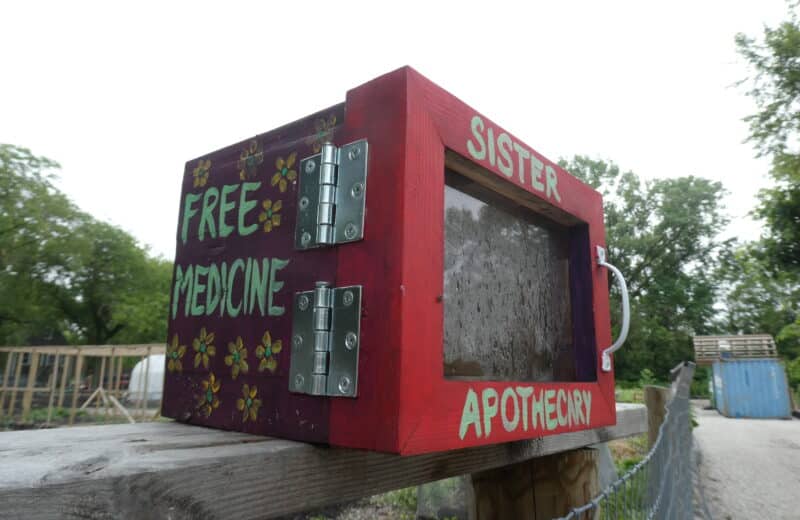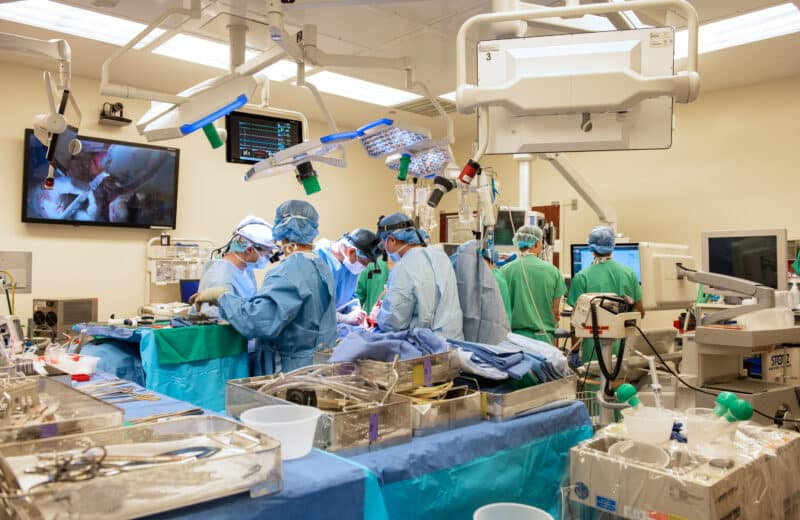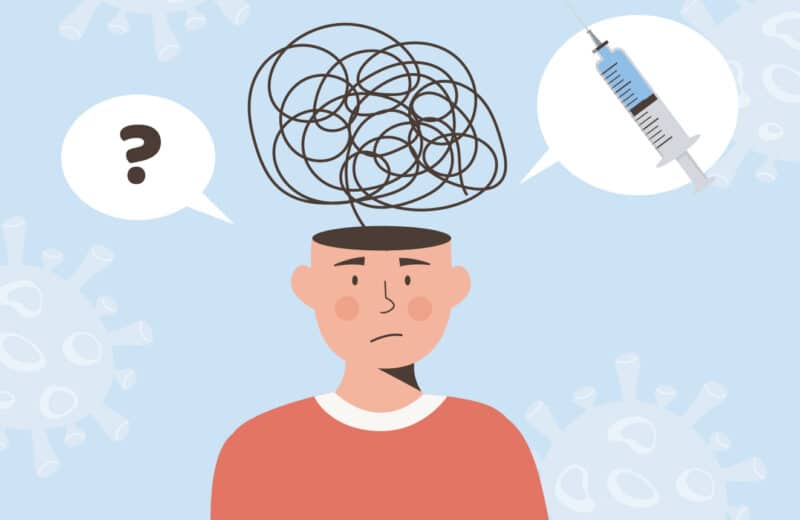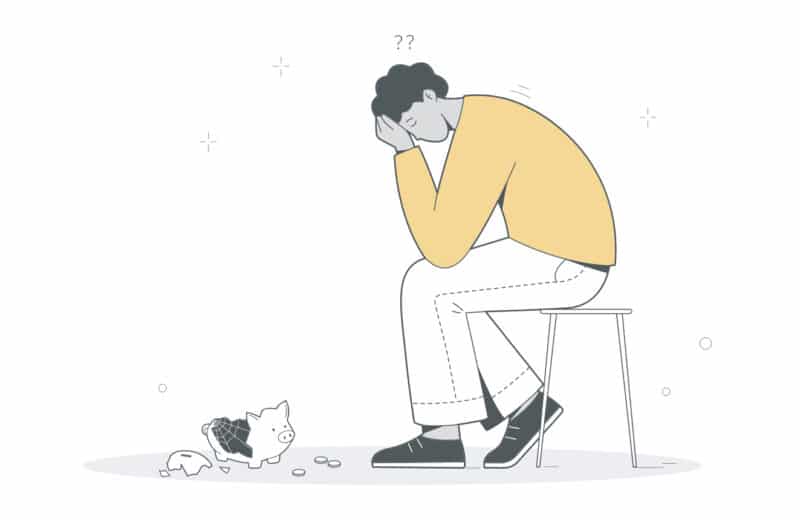When Charlie thinks about getting an injection, he shudders. “I am terrified of needles,” says the 45-year-old Pilsen resident, who asked that his last name be withheld for privacy.
He ticks off a montage of past needle disasters: At 9 years old, he had his tonsils out. When he awoke from surgery, he was so alarmed by the IV needle in his arm he started flailing his feet and kicked a nurse. In college, after getting a travel vaccination, he promptly passed out on the clinic floor. And then there are the times he’s hyperventilated, talked nonstop, and squirmed uncomfortably with nervous energy, all while getting jabbed.
“I warn pretty much anybody before they give me a shot that the best thing you can do is trick me and do it when I’m not paying any attention. If you announce, ‘Here it comes!’ it’s like a roller coaster,” he says.
When it came to getting the Covid-19 vaccine this past spring, Charlie is thankful to report he made it through the United Center mass vaccination site with no drama — thanks in part to the antianxiety medication his psychiatrist prescribed.
Charlie is one of millions of Americans who has trypanophobia, or fear of needles. According to a study published in 2018 in the Journal of Advanced Nursing, up to 50% of adolescents and 20% to 30% of young adults share this fear. The study also found that fear of needles has led 16% of adult patients and 27% of hospital employees to avoid immunizations, such as the flu vaccine.
As a nurse in the division of allergy and immunology at Rush University Medical Center, Claudie Ghalambor, RN, says she frequently encounters people who fear needles. Some people pull back their arms or cry during injections. “This can escalate to refusing the injection altogether,” she says. “Some patients talk excessively to delay the injection time.”
Mehgan Devine, PsyD, a clinical psychologist with Swedish Medical Group in Chicago who also runs a private practice in Evanston, says that fear of needles — which can also be a fear of being trapped or losing control during an injection — is usually caused by past trauma, frequently dating back to childhood.
“There is some negative association due to a direct experience or indirect experience, as in witnessing something that happened to someone. Our brain creates an association that there needs to be fear with this event,” she says. “In a way, it’s a self-protection mechanism.”
But the fear can lead to serious consequences for those who avoid seeking healthcare services and immunizations, such as the Covid-19 vaccine. With some effort, there are ways to work through the fear of needles. Here’s how.
- Speak up. If possible, make an appointment with a healthcare provider who you already know and trust. Share your fears so they can help you sort through them without shame. Ghalambor says she’s seen many patients get over their hesitancy. “After a few injections, patients usually develop a trusting relationship with their nurses and will feel more confident and less fearful,” she says.
- Find a way to distract yourself. Giving into your own anxiety loop won’t help calm you. Instead, find something that will ground you during your appointment. Devine suggests taking a loved one with you to squeeze your hand, or focusing on something around you, like a spot on the ceiling or a scent. “Connect with something that’s outside of you rather than dwelling on your own thought process,” she says.Ghalambor does her best to preoccupy anxious patients. “We try to distract them by talking about age-appropriate subjects like school, summer camp, work,” she says. “We recommend patients look away, and we avoid showing them the needles.”
- Practice relaxation techniques. Taking a deep breath — or six — can have an immediate impact. Ghalambor and her team lead nervous patients through deep-breathing exercises. Devine agrees that this approach can be calming. “A lot of people tend to overlook it, but if you’re able to do deep breathing, it really creates a relaxation response in your body,” she says.
- Identify your worst-case-scenario, and work through it. If you fear needles, what do you believe is the worst thing that can happen? Is it death? Extreme pain? Both of those occurrences are unlikely to happen with vaccinations, Devine says. When a patient thinks through their worries, they begin to realize how unrealistic those fears are.
- Seek therapy. Using cognitive behavioral therapy, Devine works with patients to identify and reframe unhelpful thinking habits, like those associated with phobias. Often, that involves unraveling fears connected to past traumas and understanding how those traumas have warped your perception of danger. “With cognitive behavioral therapy, the most important point is how can we recognize this as a thought that’s changeable, rather than something that I have to believe just because it comes to my mind,” she says.
- Set realistic expectations. Whether you’re working on your phobia in therapy or purchasing workbooks and going it solo, don’t expect perfection, Devine says. “You don’t have to be excited about going to get a vaccine. It’s more ‘I can be okay with this. I can manage this. I can get through it,’” she says. “We’re just working on ‘good enough.’”
For people like Charlie, context is also key. While getting the Covid-19 vaccine was challenging, he knew the alternative — getting a dangerous Covid-19 infection — could be so much worse. His fear of needles, after all, pales in comparison to his anxiety around more invasive medical equipment, like ventilators.
For Charlie, in the battle of fear vs. logic, logic won. He faced his fear of needles and got both Covid-19 injections. “This is a time where you just have to suck it up, because the consequences of not doing so are so dramatic,” he says.

